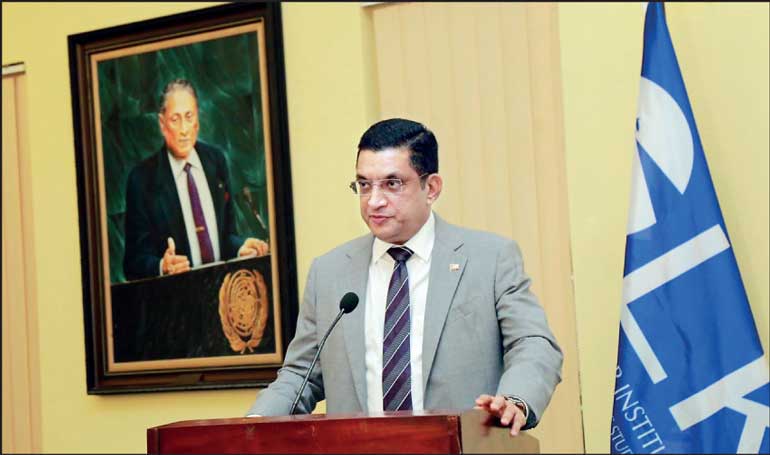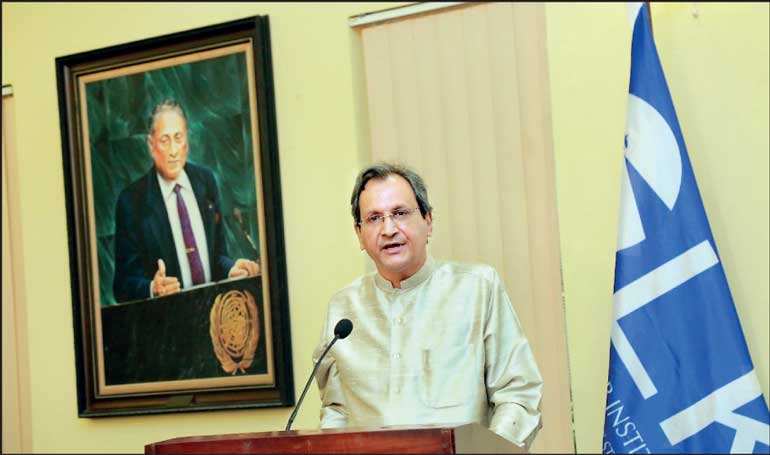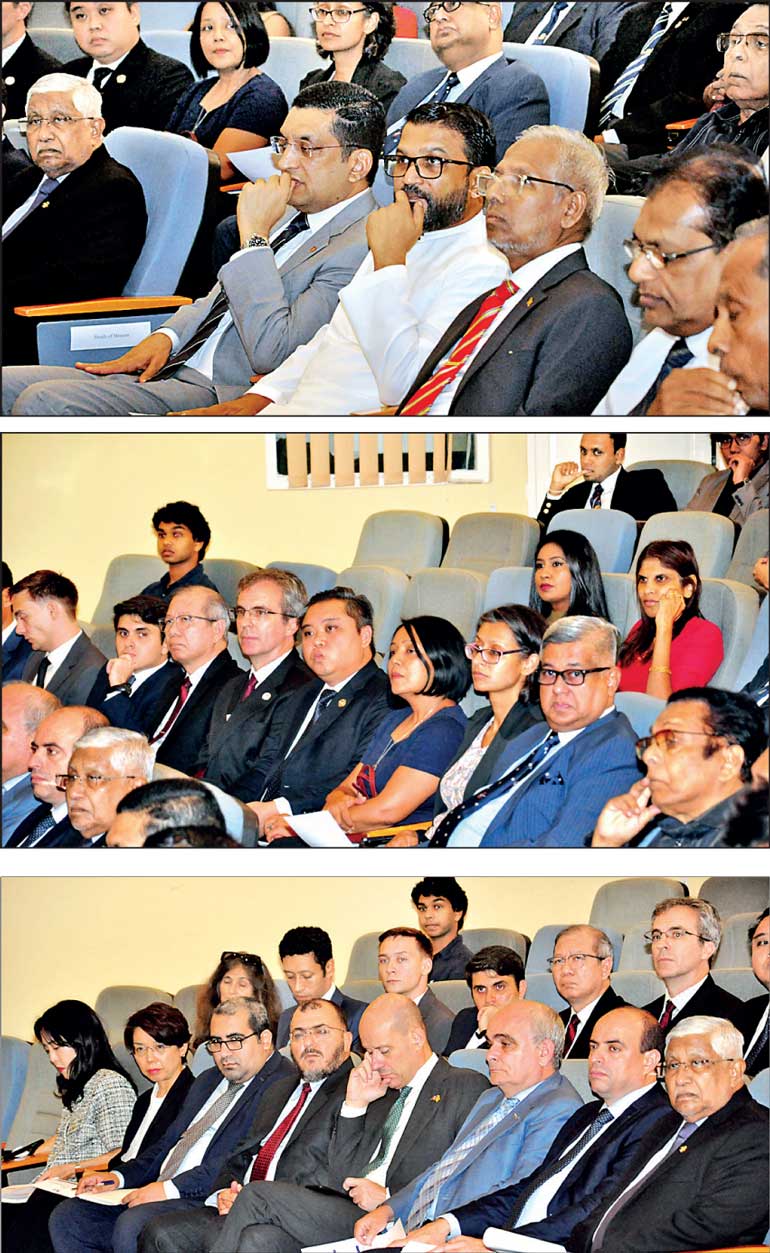Monday Feb 16, 2026
Monday Feb 16, 2026
Saturday, 12 August 2023 00:00 - - {{hitsCtrl.values.hits}}
 Foreign Minister Ali Sabry
Foreign Minister Ali Sabry

LKI Executive Director Ambassador Ravinatha Aryasinha
Foreign Minister M.U.M. Ali Sabry on Wednesday underlined the importance of data-based research to guide Government policy making, noting that if such practice had been followed, particularly in regard to the economy, Sri Lanka would have averted the crisis which it faced.
The Minister said it is important to conduct research, present papers, debate openly and within closed doors, in order to make the right decisions.
The Minister made this observation when he delivered the inaugural address at the launching of the ‘LKI Foreign Policy Forum’, a quarterly flagship event of the Lakshman Kadirgamar Institute of International Relations and Strategic Studies (LKI) held on 9 August at the LKI Lighthouse Auditorium. This launch coincided with the 18th death anniversary of the Late Lakshman Kadirgamar which falls on 12 August 2023. The event was attended by State Minister of Foreign Affairs Tharaka Balasuriya, Acting Foreign Secretary U.L.M. Jauhar, and a representative gathering comprising of heads of diplomatic missions and international organisations, Government officials, academics, business leaders, civil society, media practitioners, as well as students.
Noting that the LKI was initiated in 2000 as the Sri Lanka Institute of Strategic Studies by the late Foreign Minister Lakshman Kadirgamar, Minister Ali Sabry said following the late Minister’s assassination the institute was renamed in 2006, to honour the services he had rendered to the country. He said the legacy of Lakshman Kadirgamar lives through the Institute, and that in remembering him, it was important to work with the same diligence, enthusiasm and dedication. The Minister emphasised the importance for LKI to ensure that research produced maintains high standards of accuracy, independence and impartiality, and noted that this prerogative of the LKI to engage in independent research is essential, in order for it to maintain its credibility. He hoped the ‘LKI Foreign Policy Forum’ would provide a platform for discussion, analysis and evaluation, which will strengthen engagement with relevant actors. He added that it was important that the topics chosen are contemporary and relevant, and that the ensuing discussions help provide recommendations for policy decisions.
LKI Executive Director Ambassador Ravinatha Aryasinha, who delivered the welcome remarks, noted that in a rapidly changing world the new platform could contribute to build ‘common ground’ and develop a ‘Sri Lankan perspective’ on issues.
He said these were goals late Foreign Minister Kadirgamar was committed to in his lifetime, and trusted an institute of the nature of LKI would fulfil beyond his time. He said, besides several other LKI flagship projects being undertaken on a periodic basis, the Institute has put in place a comprehensive ‘LKI Research Programme’ under four pillars – Global Governance, Global Economy, Global Peace and Security, and Global Relations.
He noted that in addition to the institution’s resident research staff, the LKI will draw on relevant academics and issue experts, in order to build a network that could contribute to the development of foreign policy options and enable a public discourse that could evolve strategies to better serve the country and the global community.
Later, The Changing Global Dynamics: Implications for Sri Lanka was discussed by an eminent panel comprising: Former Foreign Secretary, Ambassador H.M.G.S. Palihakkara, Kotelawala Defence University (KDU) Director – International Relations and Director – Centre for Strategic Assessment Dr. Harinda Vidanage, Institute of Policy Studies (IPS) Executive Director Dr. Dushni Weerakoon, and National Peace Council of Sri Lanka (NPC) Executive Director Dr. Jehan Perera. In addressing some of the salient dynamics of the current global order outlined by Ambassador Aryasinha who moderated the session, the panel analysed the implications of these trends to Sri Lanka from foreign policy, strategic security, economic and civil society perspectives, respectively. This was followed by a vibrant question and answer session.

